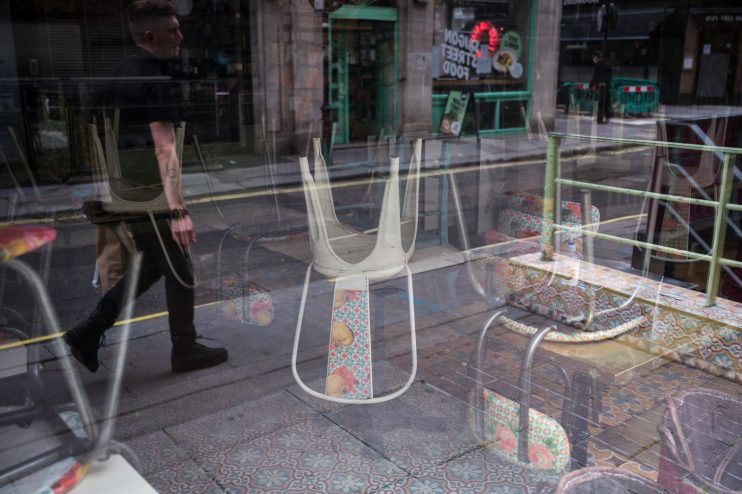UK business activity shrinks as fresh lockdown hits services sector

UK business activity contracted this month as the rollout of fresh lockdown measures took its toll on the services sector.
The IHS Markit/CIPS UK Composite Purchasing Managers’ Index (PMI) dropped to 47.4 in November, according to initial readings, down from 52.1 in October.
The figures represent a five-month low and the first time since June that the index has fallen below the crucial 50.0 growth threshold.
However, the data was well above the consensus of 42.5.
The UK economy is expected to contract in the fourth quarter after Prime Minister Boris Johnson implemented a second four-week national lockdown, which is due to end of 2 December.
But the data indicates that the economic impact of the second lockdown is significant less severe than the initial measures at the start of the crisis.
UK PMI sank to a record low of just 13.8 in April and improved only to 30.0 in May.
Economists said the improved data for November was likely due to an increased number of businesses continuing to trade in some form, for example through click and collect services.
Nevertheless, the closure of pubs, bars and restaurants still dragged down the services sector, which saw its PMI level drop to 45.8 from 51.4 last month.
Job losses in the private sector also accelerated this month, with the composite employment index falling to 42.1 from 43.4.
The figures show that chancellor Rishi Sunak’s decision to extent the furlough scheme to the end of the first quarter has done little to stem the flow of redundancies.
The index authors said they expected unemployment to continue rising to a peak of roughly 6.5 per cent in the spring.
Manufacturing bucked the overall downward trend, with PMI for this sector rising to 55.2 — the joint highest level since 2018.
The figures reflects both stockpiling by EU customers ahead of a potential trade shock when the Brexit transition period ends in January and disruption at UK ports, which led to delays in the supply chain.
But manufacturing output is expected to fall in the first quarter even if a Brexit trade deal is reached, as overseas customers have brought forward activity to the final quarter of this year.
There were some bright spots, however, and the survey found managers were at their most optimistic since March 2015, largely thanks to progress in the development of Covid-19 vaccines.
“Despite the unknowns, the hope offered by the vaccine breakthroughs could be powerful in helping to curb the pace of redundancies as firms have more incentive to keep staff on furlough with the prospect of an improving picture by March,” said Rhys Herbert, senior economist at Lloyds Bank.
“Nevertheless, while the outlook is looking brighter for next year, there’s still a challenging winter to endure, and so businesses will likely remain cautious amid the ongoing uncertainty.”